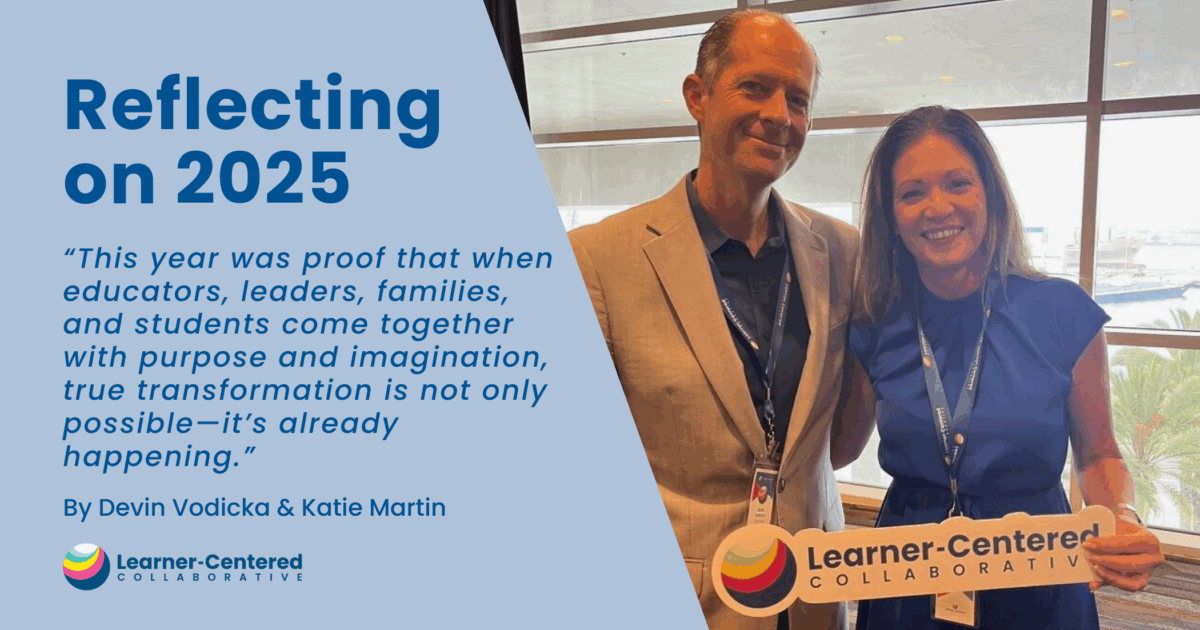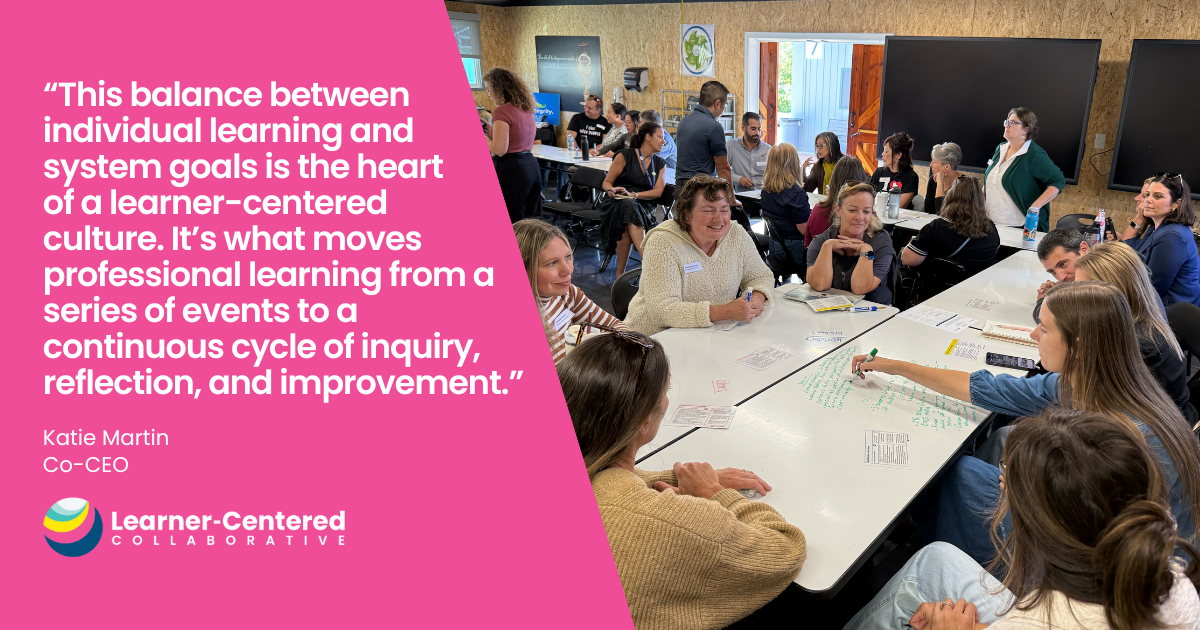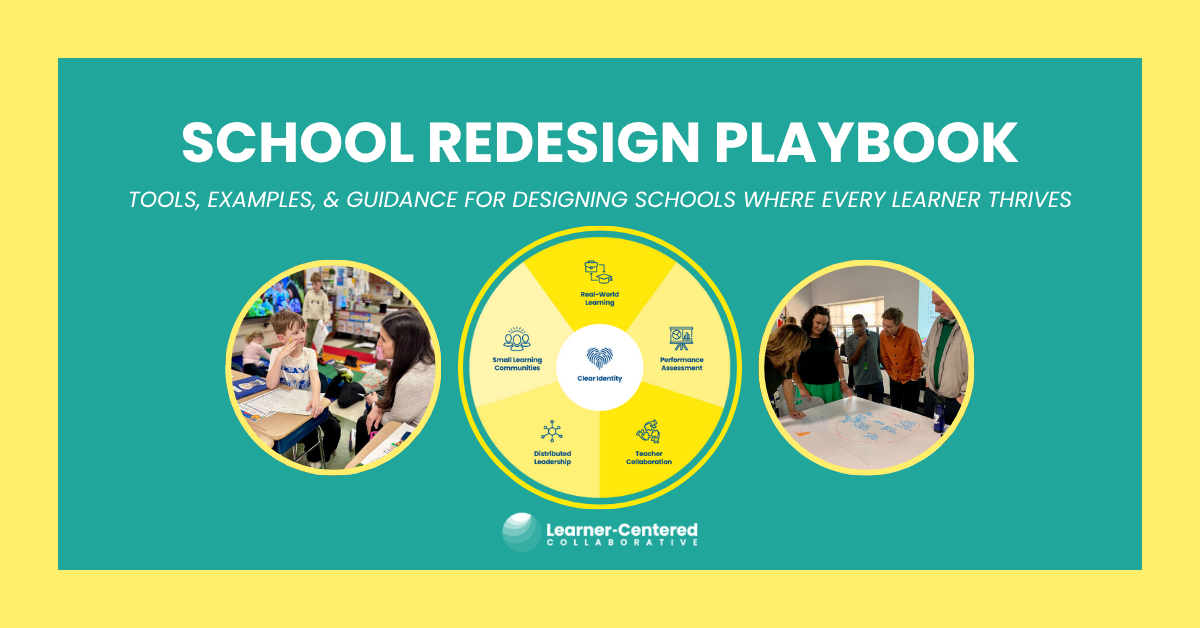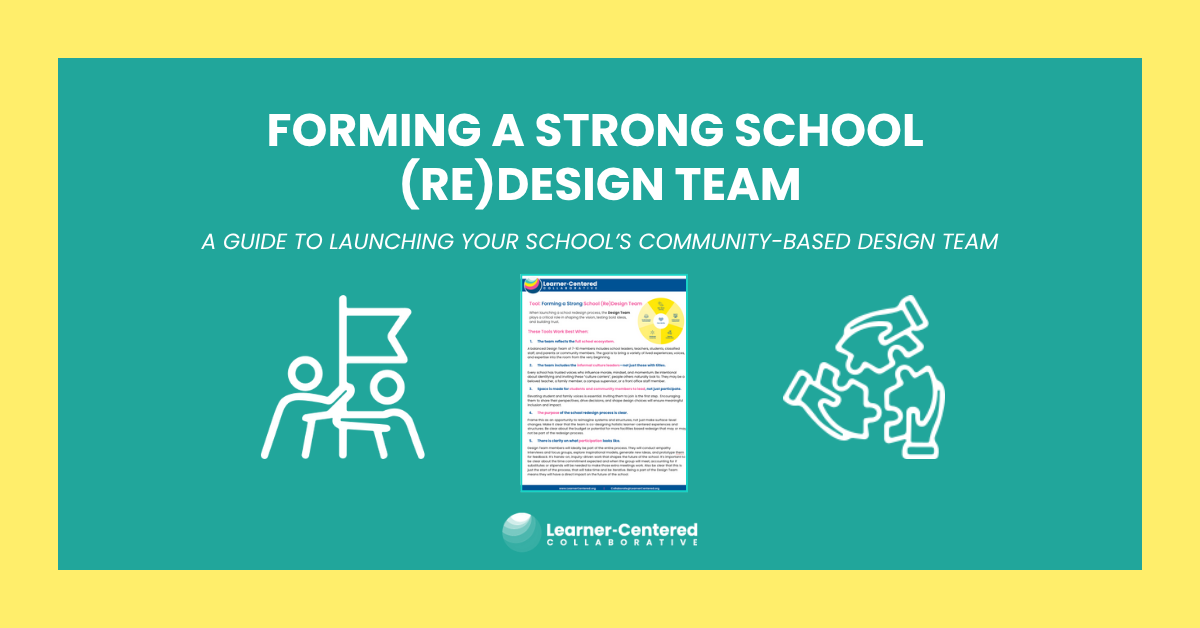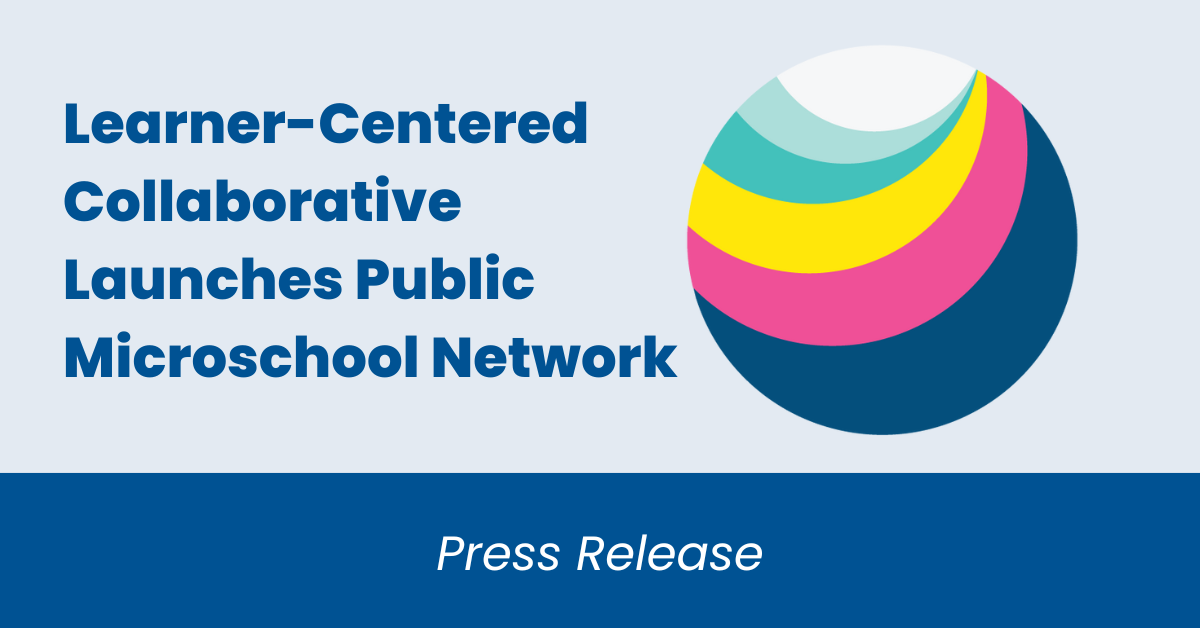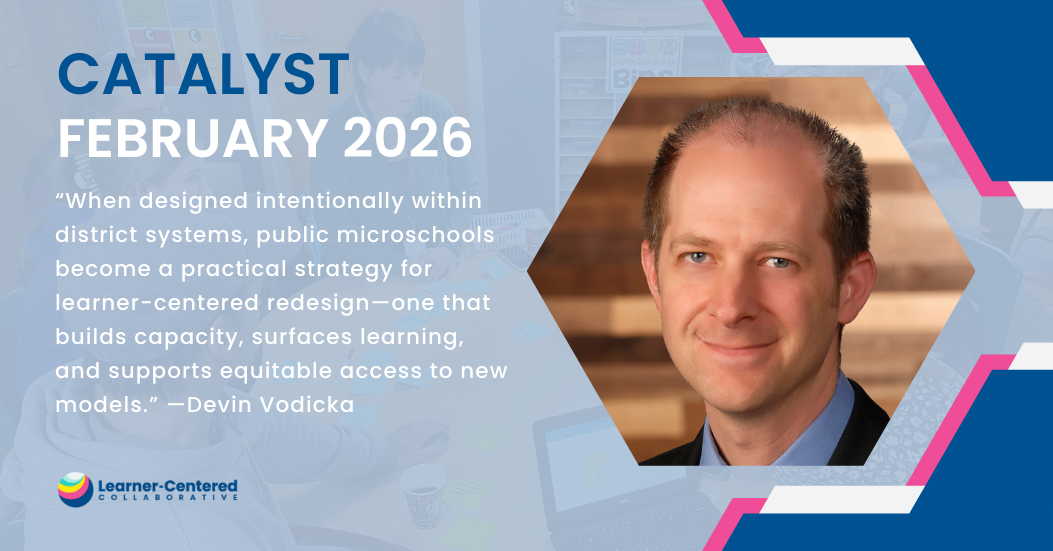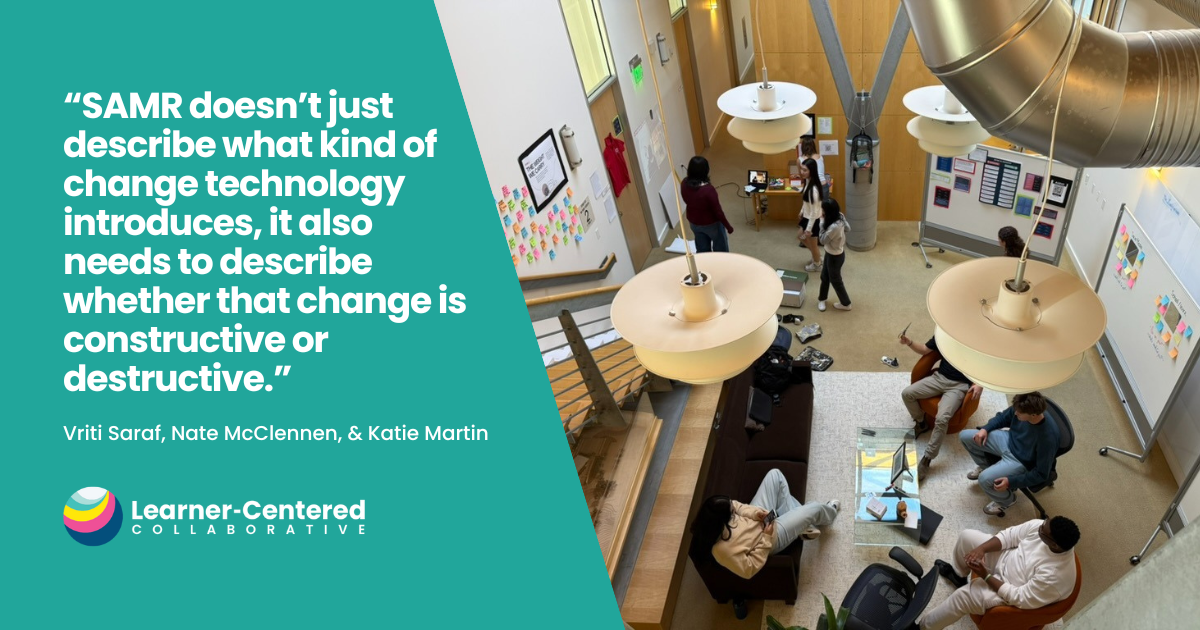Distributed Leadership in Schools: Students as Ambassadors
Written by Dr. Leighangela Brady, Superintendent, National School District. Dr. Brady is also a member of the Learner-Centered Collaborative Advisory Council.
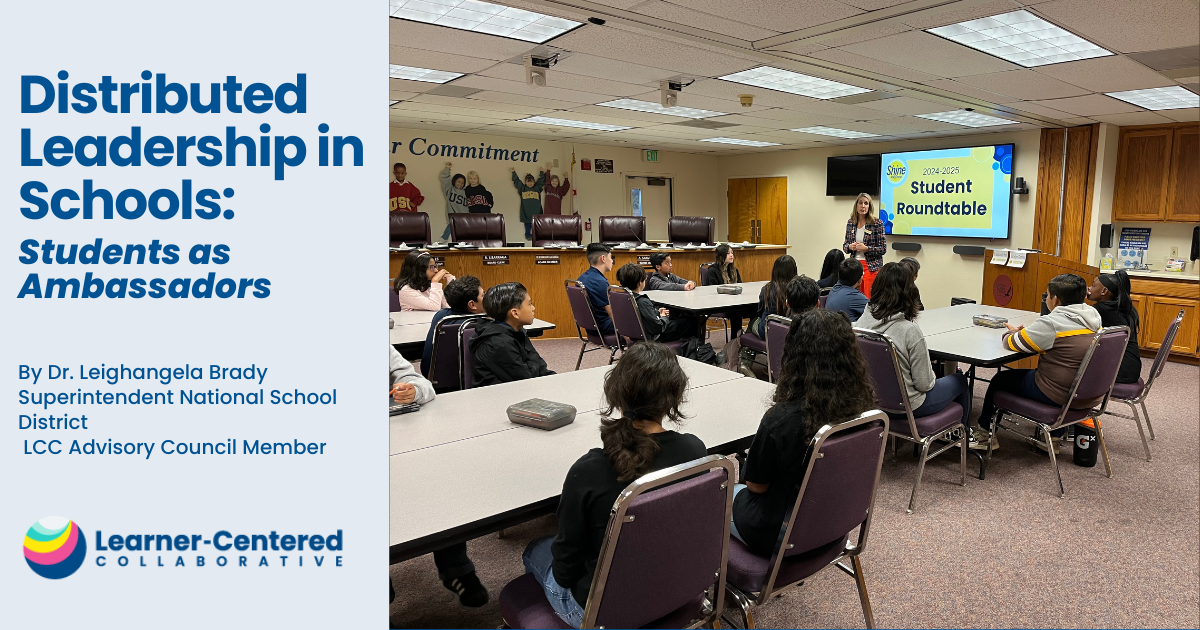
Distributed leadership offers a way to harness the collective strengths of all members of an educational ecosystem, including school staff, parents, community partners, and most importantly, students. While adults often take center stage in leadership conversations, students have the potential to transform school communities when they are given authentic opportunities to lead.
Students as Problem-Solvers and Changemakers
Anyone who works with schools knows that students thrive on meaningful problem-solving that enables them to apply their knowledge and skills at deeper levels. When they are empowered to take ownership of initiatives, the results are twofold: students develop greater buy-in and pride in their work, and the entire system benefits from their creativity and fresh perspectives.
In National School District, students exemplify this dynamic through their engagement with a Profile of a Learner, which outlines key outcomes for developing exceptionally prepared learners; innovative and compassionate world citizens. Students participate in initiatives that nurture leadership, creativity, and a sense of responsibility to their schools and the world.

Read more about student voice in decision-making in our student-written blog “The Power of Student Voice: My Journey on the D11 District Accountability Committee”
Connecting Local Efforts to Global Impact
From researching topics and delivering TED Talks to producing animations and composing original music, students in National School District engage deeply with the United Nations Sustainable Development Goals (SDGs) and promote local efforts that have global impacts. These projects align seamlessly with the Learner Profile outcomes:
- Exceptionally Prepared Learners: Students research with purpose, think critically, and communicate effectively with diverse audiences.
- Innovative: They practice creativity and open-mindedness while applying problem-solving skills to real-world challenges.
- Compassionate: Students demonstrate kindness and caring; displaying empathy with a strong desire to help, support, and connect.
- World Citizens: By addressing global issues through the SDGs, students demonstrate cultural awareness, promote diversity, and advocate for equity.
This year’s district theme, “Shine,” reflects the commitment to illuminating human potential to positively impact the world. It serves as a guiding principle for initiatives like the Superintendent Student Roundtable, where sixth graders take on the role of ambassadors for their schools and community.

Students as Ambassadors: The Superintendent Student Roundtable
The Superintendent Student Roundtable brings together sixth-grade leaders who meet regularly with the Superintendent to discuss and plan initiatives aimed at improving their schools and communities. These students then work closely with principals to implement ideas generated during roundtable meetings and share updates with peers, families, and even the Governing Board; creating a ripple effect of collaboration and shared purpose.
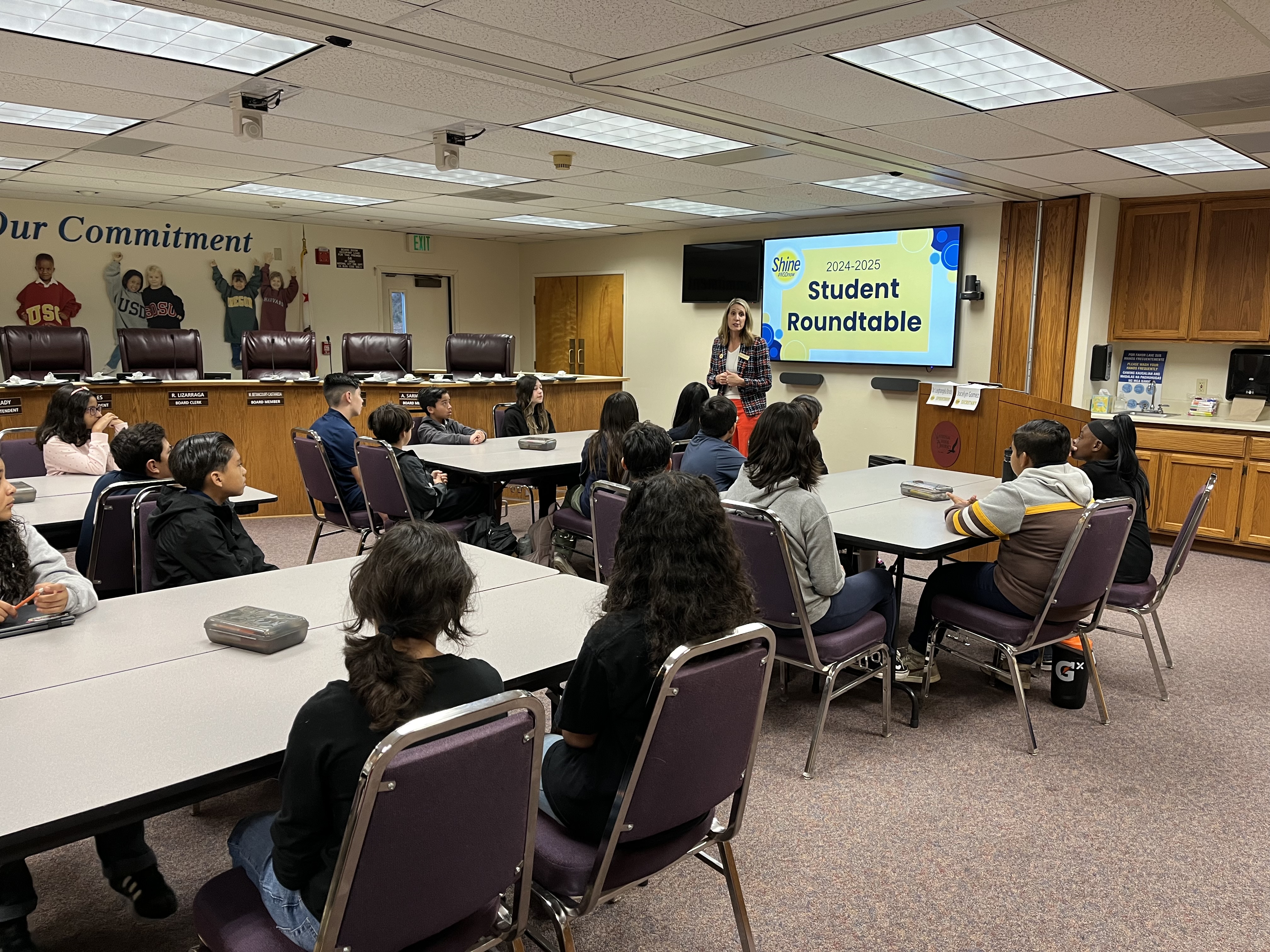
Kid’s Heart Challenge
One Roundtable example is the Kid’s Heart Challenge, a campaign designed in partnership with the American Heart Association. Students plan and execute a three-week heart health and safety campaign, leading school-wide assemblies, creating posters, delivering morning announcements, and teaching sidewalk CPR skills to every student on campus.
How this initiative aligns with the Profile of a Learner:
- Exceptionally Prepared Learners: Students act with confidence and self-direction while collaborating with adults and peers on campaign strategies.
- Innovative: Students show flexibility and curiosity by designing creative ways to engage their school communities.
- Compassionate: By promoting life-saving skills, they display empathy and a desire to support their peers.

Anti-Idling Campaign
Another impactful initiative is the anti-idling campaign, where students collect data on idling cars during pick-up times and educate families about the environmental and health impacts of vehicle emissions. This campaign is a testament to the district’s environmental leadership, recognized with the California Green Ribbon Schools Award Silver Level Distinction.
How this project supports several Profile of a Learner outcomes:
- Exceptionally Prepared Learners: By analyzing data and communicating their findings, students demonstrate scholarly research and effective communication skills.
- Compassionate: Educating families shows their commitment to creating healthier, more sustainable communities.
- World Citizens: Students advocate for cleaner air, act responsibly, and address global environmental issues locally.

Collaboration with Adults to Amplify Impact
While students lead these projects, their success relies on partnerships with adults:
- Teachers: Embed learning opportunities into the curriculum and provide resources.
- Principals: Serve as mentors, guiding students through implementation.
- Parents: Reinforce initiatives through the PTA and at home and provide valuable feedback.
- Community Partners: Offer expertise and resources to enhance impact.
Empowering students as ambassadors to achieve distributive leadership supports the Profile of a Learner, demonstrating how shared responsibility strengthens the school ecosystem and amplifies student voice.

Discover the impact of listening in leadership in Devin Vodicka’s Catalyst “The Listening Leader: Striking the Balance Between Receptive and Expressive Communication”
Empowering Students to Shine
Through projects like the Kid’s Heart Challenge and the anti-idling campaign, students in the National School District are learning to lead with purpose, creativity, and accountability. These experiences prepare them to thrive as active, engaged citizens ready to tackle real-world challenges.
By positioning students as ambassadors, the district is demonstrating its theme of “Shine” and spotlighting the transformative power of distributed leadership. Students are not only connecting district priorities to school-level actions but also contributing to a more compassionate, innovative, and globally minded community.
National School District’s Profile of a Learner—focused on exceptionally prepared learners, innovative and compassionate world citizens—provides the foundation for this work. As the district continues to refine the profile in partnership with Learner-Centered Collaborative, these student-led initiatives offer powerful examples of how the profile comes to life in practice.
By embracing distributed leadership, we are empowering students to shine as leaders today and become the changemakers of tomorrow.
Discover how other schools are involving students in key decisions in “What Happens When You Let Learners Lead? Embark Learners Share Their Insights”
